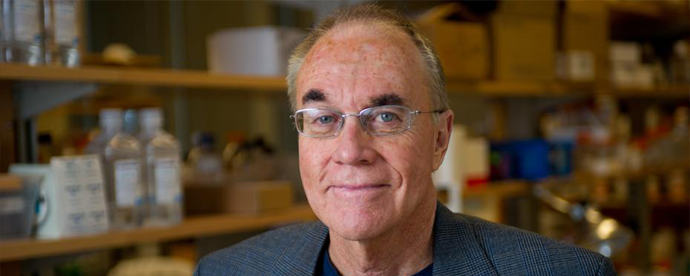
There are more than 200 diseases called cancer and they all start when abnormal cells in a part of the body divide uncontrollably, growing with reckless abandon. Why these bad cells run amok is the focus of thousands of researchers across the world and billions of dollars. The current consensus among the vast majority of researchers is that most if not all cancers are caused by a change in or damage to genes, collectively called "mutations." But research from two Georgia Institute of Technology cancer geneticists may alter the prevailing view.
"With the exception of the few things that we know are related to predisposition, the consensus view now is that cancer is due to ‘de novo’ mutations," says John McDonald, professor of Biology and director of the Integrated Cancer Research Center (ICRC) at the Petit Institute for Bioengineering and Bioscience. The term "mutation" is typically used to encompass a broad spectrum on genomic level lesions ranging from small changes in the single letter DNA code (point mutations) to large chromosomal deletions and rearrangements (structural mutations) that can adversely affect the architecture and function of cells. The explosion in the number of genome sequencing studies carried out over the past several years comparing normal and cancer tissues has generated an abundance of genome databases ripe for computational analyses of the spectrum of mutations associated with cancer. In a study just reported in the online journal BMC Medical Genomics McDonald and Vinay Mittal (former graduate student in McDonald’s lab, now a bioinformatics scientist with Thermo Fisher Scientific in Michigan) report the results of a detailed analysis of structural mutations associated with ovarian cancer – the deadliest of all gynecological cancers.
The results of the study underscore the importance of gene regulation in cancer. It raises questions about how and when cancer is due to a de novo mutational event or a mistake in information flow. "The accumulation of structural variants and other mutations in our cells with the potential to cause cancer may be inevitable as we age, but our cells may naturally strive to suppress the expression of some of this misinformation," says McDonald. "This suggests that while mutations may be necessary for the onset of most cancers, they my not be sufficient. We need to better understand the regulatory mechanisms that can suppress cancer causing mutations in some individuals and how these mechanisms break down in cancer patients."
Studies are currently on-going to see if the suppression of cancer causing genetic lesions extends to other classes of mutation and to understand the molecular processes that may underlie the suppression mechanism. The hope is that this work will lead to novel and more effective therapies and treatments for cancer.
To learn more visit http://petitinstitute.gatech.edu/cancer-may-not-be-caused-mutations-alone.
Jerry Grillo
Communications Officer II
Parker H. Petit Institute for
Bioengineering and Bioscience


